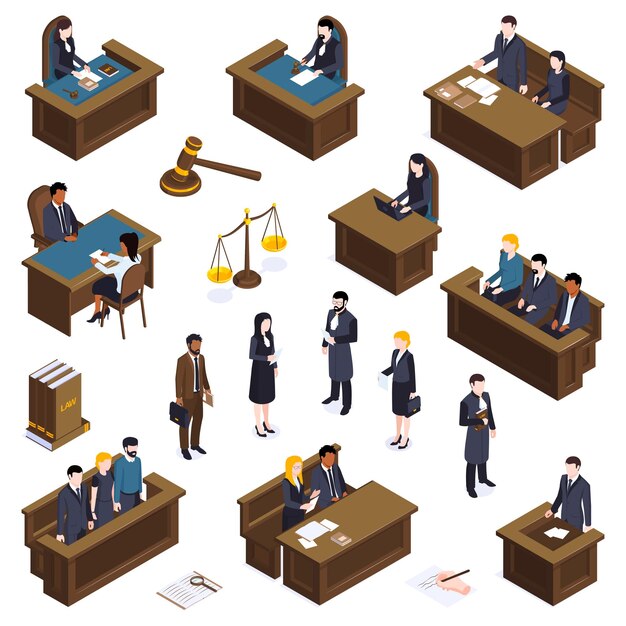Introduction
In an increasingly interconnected world, the fight for human rights has become more critical than ever. Human rights advocacy is not just about raising awareness; it involves a deep understanding of legal frameworks, international laws, and the ability to navigate complex legal systems. Legal training is, therefore, an indispensable tool for anyone committed to advocating for human rights. At Al Mithaq Institute, we offer comprehensive legal training programs designed to equip you with the knowledge and skills necessary to make a significant impact in this field. This article explores the importance of legal training in human rights advocacy and how our courses can help you become a more effective advocate.
Understanding Human Rights Advocacy
What is Human Rights Advocacy?
Human rights advocacy involves efforts to promote and protect human rights at local, national, and international levels. Advocates work to ensure that individuals and communities can enjoy their fundamental rights and freedoms, such as the right to life, freedom from torture, and freedom of expression. Advocacy can take many forms, including lobbying, public campaigns, legal action, and education.
The Role of Legal Knowledge in Advocacy
Legal knowledge is crucial for effective human rights advocacy. Understanding the legal frameworks that protect human rights allows advocates to:
- Identify Violations: Recognize when and where human rights are being violated.
- Navigate Legal Systems: Understand how to use legal systems to seek justice and redress.
- Develop Strategies: Formulate effective strategies for advocacy and intervention.
- Engage with Stakeholders: Communicate effectively with governments, international organizations, and other stakeholders.
The Importance of Legal Training
Building a Strong Foundation
Legal training provides a solid foundation in the principles and practices of human rights law. This includes understanding international human rights instruments, such as the Universal Declaration of Human Rights, the International Covenant on Civil and Political Rights, and the International Covenant on Economic, Social and Cultural Rights. At Al Mithaq Institute, our legal training programs cover these essential documents and more, ensuring that you have a comprehensive understanding of the legal landscape.
Developing Practical Skills
Legal training goes beyond theoretical knowledge. It equips you with practical skills that are essential for human rights advocacy, such as:
- Legal Research: Conducting thorough and accurate legal research to support your advocacy efforts.
- Case Analysis: Analyzing legal cases to understand how human rights laws are applied in practice.
- Drafting Legal Documents: Writing legal briefs, petitions, and other documents necessary for advocacy.
- Negotiation and Mediation: Developing skills to negotiate and mediate disputes, which are often crucial in human rights work.
Enhancing Credibility and Effectiveness
Having formal legal training enhances your credibility as a human rights advocate. It demonstrates to stakeholders, including governments, NGOs, and international organizations, that you have the expertise necessary to engage in meaningful advocacy. This credibility can open doors to more significant opportunities and increase the effectiveness of your advocacy efforts.
Al Mithaq Institute’s Legal Training Programs
Comprehensive Curriculum
Our legal training programs are designed to provide a comprehensive education in human rights law. The curriculum includes:
- International Human Rights Law: An in-depth study of international human rights instruments and mechanisms.
- Domestic Human Rights Law: Understanding how human rights are protected and enforced at the national level.
- Legal Research and Writing: Developing the skills necessary to conduct legal research and draft effective legal documents.
- Advocacy and Litigation: Learning how to advocate for human rights through legal channels, including litigation.
Experienced Faculty
Our faculty members bring over a decade of professional experience, combining academic excellence with practical knowledge. They are dedicated to delivering insightful education and engaging training courses that prepare you for real-world challenges in human rights advocacy.
Flexible Learning Options
We understand that our students have diverse needs and commitments. That’s why we offer flexible learning options, including online and in-person courses. Whether you are a working professional or a full-time student, our programs are designed to fit your schedule.
Accreditation and Recognition
Our certificates are recognized locally and internationally, enhancing the credibility and educational value of our programs. We are accredited by the Knowledge and Human Development Authority (KHDA) of Dubai and have a partnership with Leeds International College, UK.
Case Studies: The Impact of Legal Training in Human Rights Advocacy
Case Study 1: Combating Human Trafficking
Human trafficking is a grave human rights violation that requires a robust legal response. Advocates with legal training can effectively navigate the legal systems to prosecute traffickers and protect victims. For example, a graduate from our legal training program successfully led a campaign that resulted in the prosecution of a human trafficking ring, leading to the rescue of dozens of victims.
Case Study 2: Protecting Freedom of Expression
In countries where freedom of expression is under threat, legal training is essential for advocating for journalists and activists. One of our alumni used their legal expertise to challenge restrictive laws and secure the release of several journalists who had been unjustly detained.
Case Study 3: Advocating for Women’s Rights
Legal training is crucial for advocating for women’s rights, particularly in regions where gender-based discrimination is prevalent. A graduate from our program successfully lobbied for the enactment of laws that protect women from domestic violence and ensure their access to education and employment.
The Future of Human Rights Advocacy
Emerging Challenges
The field of human rights advocacy is constantly evolving, with new challenges emerging regularly. These include:
- Digital Rights: As technology advances, issues related to digital privacy and freedom of expression online are becoming increasingly important.
- Climate Justice: The impact of climate change on human rights is a growing concern, requiring advocates to understand the intersection of environmental and human rights law.
- Global Migration: The global migration crisis presents complex human rights challenges, including the rights of refugees and migrants.
The Role of Legal Training
Legal training will continue to play a crucial role in addressing these emerging challenges. Advocates with a strong legal foundation will be better equipped to develop innovative solutions and advocate for policies that protect human rights in these new contexts.
Conclusion
Legal training is an essential component of effective human rights advocacy. It provides the knowledge and skills necessary to navigate complex legal systems, develop effective advocacy strategies, and enhance credibility. At Al Mithaq Institute, we are committed to providing high-quality legal training programs that prepare you to make a significant impact in the field of human rights advocacy. Whether you are just starting your journey or looking to enhance your existing skills, our programs offer the flexibility, expertise, and recognition you need to succeed.
If you are passionate about human rights and want to make a difference, consider enrolling in one of our legal training programs. Visit our courses page to learn more about our offerings and take the first step towards becoming a more effective human rights advocate. For any inquiries, feel free to reach out to us through our contact page. Together, we can work towards a world where human rights are respected and protected for all.







